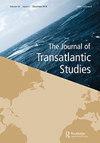奥特加·加塞特与阿根廷的关系很复杂
Q1 Arts and Humanities
引用次数: 0
摘要
在20世纪初——在98年的大萧条和西班牙内战之间,在阿根廷由于大量外国移民的涌入而出现人口爆炸期间——两国的精英和保守分子都感到一场政治、精神和生存危机迫在眉睫,其表现形式是现代大众的崛起。事实上,这些群众被视为国内外无政府主义、共产主义和民主混乱威胁的化身。在西班牙人的世界里,西班牙哲学家约瑟•奥尔特加•加塞特(jossartega y Gasset)在“野蛮”群众问题上自封为权威,他是西班牙以外在阿根廷最有影响力的思想家。本章探讨奥尔特加与他的“第二故乡”的关系,最终假设他在《la rebelión de las masas_》中提出的精英主义、威权主义和仇外主义论点,以及他关于阿根廷的各种文章,都是为即将出现的反大众的跨大西洋共谋提供哲学上的理由。本文章由计算机程序翻译,如有差异,请以英文原文为准。
It’s Complicated—Ortega y Gasset’s Relationship with Argentina
At the start of the 20th Century – between the desastre del '98 and the Civil War in Spain, and during a population explosion in Argentina due to a massive influx of immigrants from abroad – elites and conservative elements in both countries felt a political, spiritual, and existential crisis to be at hand in the form of the ascent of the modern masses. Indeed, these masses were seen to personify the threat of anarchic, communistic, and democratic disorder at home and abroad. Within the Hispanic world, the self-styled authority with regards to the "barbaric" masses was the Spanish philosopher, José Ortega y Gasset – a thinker who, outside of Spain, was most influential in Argentina. This chapter explores Ortega's relationship with his “second homeland,” ultimately positing that the elitist, authoritarian, and xenophobic theses he puts forth in _La rebelión de las masas_ and his various essays on Argentina served as the philosophical justification for the transatlantic co-conspiracy against the masses that would come to emerge.
求助全文
通过发布文献求助,成功后即可免费获取论文全文。
去求助
来源期刊

Journal of Transatlantic Studies
Arts and Humanities-History
CiteScore
0.90
自引率
0.00%
发文量
15
期刊介绍:
The Journal of Transatlantic Studies is the official journal of the Transatlantic Studies Association. It began publication in 2003. The focus is on the transatlantic region broadly defined to include the Americas and the Caribbean in the west and Europe extending to Russia the Middle East and Africa in the east.The Journal explores and provides multi-disciplinary analysis of this vital region of the world through engagement principally with: - History - Literature - IR and Security Studies - International Law and Organisation - Culture and Race - Slavery and Migration - Film - Economics and Business Studies - Planning and the Environment It is published quarterly and accepts proposals for themed issues as well as individual articles between 5-12,000 words in length. It also has a short book review section. Two peer reviewers evaluate all submissions and any manuscript that divides opinion is then submitted to a third peer reviewer for a final decision. The JTS aims to provide decisions on submissions within 12 weeks.
 求助内容:
求助内容: 应助结果提醒方式:
应助结果提醒方式:


